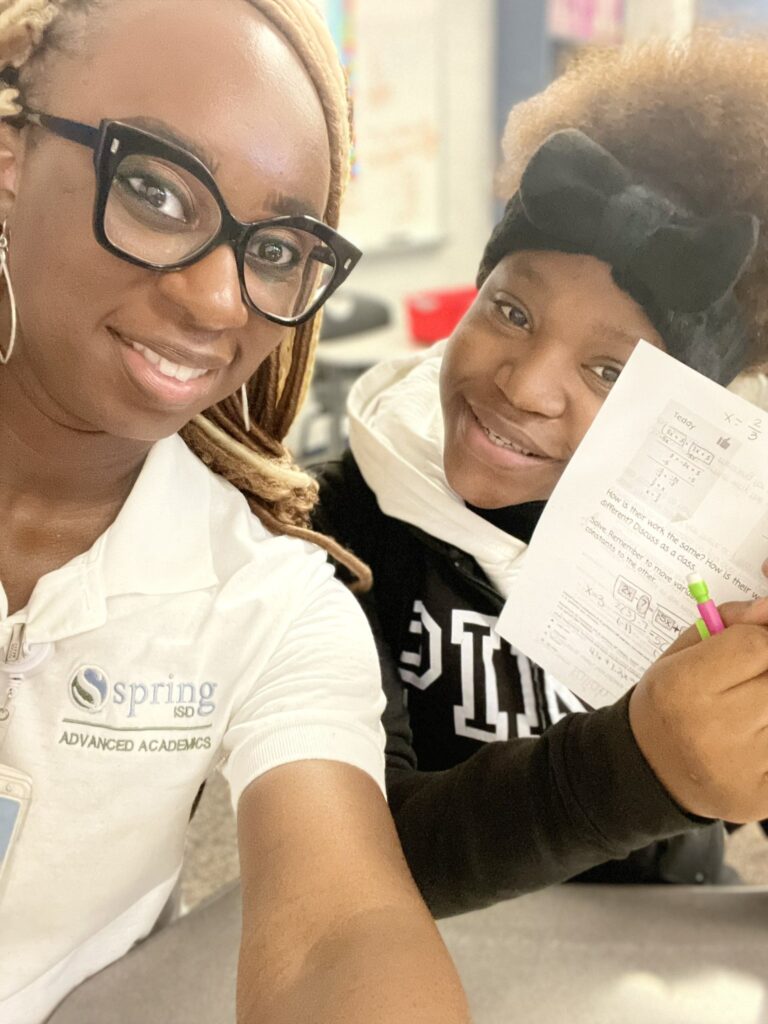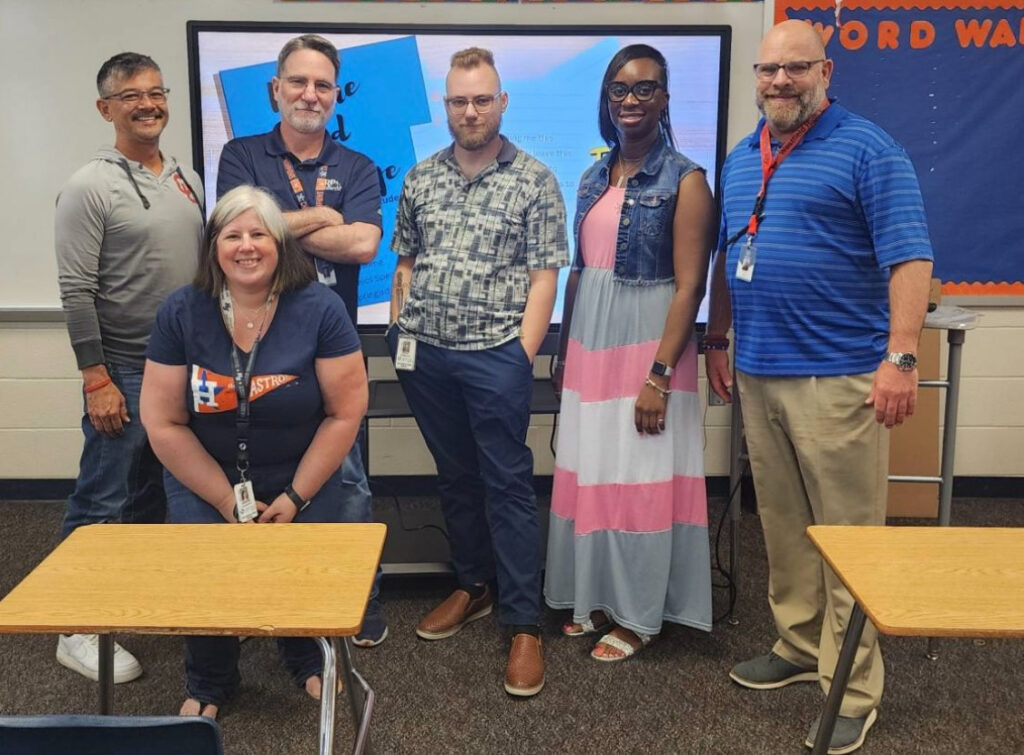In September, EOS announced our inaugural class of Opportunity Champions, who are recognized for doing exceptional work in transforming their school or district’s advanced academic pathways.
This month, we are highlighting Shontel Newsome, Advanced Academics Specialist for Spring Independent School District in Texas.
Newsome was nominated by EOS Partnership Director LaShone Singleton, who highlighted her “leadership and innovative strategies” in boosting participation in equity-building work across her district. Under Newsome’s guidance, every high school in Spring ISD has an EOS site lead and equity team.
“Shontel’s enthusiasm and commitment bring an infectious energy to the team, fostering a collaborative and positive atmosphere,” Singleton said. “Her ability to connect with diverse groups and inspire action has made the initiative impactful.”
We asked Newsome about the factors that drive her continued dedication to educational equity, and the impact she has witnessed through her work alongside EOS. Here is what she said:
What drives you to continue to do the work of creating access and opportunity in your district?

As a first-generation college student of color, this work is incredibly dear to my heart. I am driven by a deep commitment to help those who may follow in my footsteps, ensuring that every student—especially those who are often overlooked, misinformed, or uninformed—has the information and opportunities they need to succeed and compete globally.
I have consistently advocated for equity, implemented equity plans, and spoken up in spaces where others may have been hesitant. My goal has always been to keep equity at the forefront of our work, and I am dedicated to laser focusing on students of color to ensure they receive the support they need to reach their full potential.
One of my favorite parts of the work this year has been the ongoing conversations with district leaders about student data and possible outcomes as we gas up to drive meaningful change and make a tangible impact. These discussions, grounded in data, allow us to challenge the status quo and push for better outcomes for all students, particularly those who have been historically marginalized.
This work is more than just a job for me—it’s a mission. The progress we’ve made and the potential for future growth is what continues to inspire and motivate me every day.

Can you tell us about a time when you witnessed the impact of the EOS work on you, your colleagues or your students?
EOS has been instrumental in supporting student success by prompting campus and district leaders to closely examine the survey responses from both students and teachers. It was eye-opening to see the disconnect between the teachers’ outlooks for their students and the students’ own desires for their personal goals. This realization has been a crucial step in our work.
We were able to begin addressing this disconnect by focusing on changing teachers’ mindsets, ensuring they align more closely with the aspirations and potential of their students. In some cases, this even meant considering changes in the teaching staff to ensure we have the right educators in front of our students—those who truly believe in their abilities and are committed to their success.
By fostering these important conversations and interventions, EOS has played a critical role in bridging the gap between student aspirations and teacher expectations, ultimately laying the foundation towards better outcomes for our students.